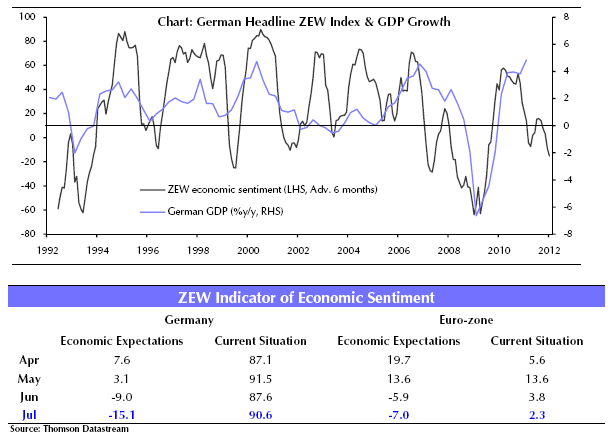The US sales from the strategic reserve have been about 1 million bpd and are due to end soon. Saudis have upped output by about 1 million per day as well. My concern is how the US output will be ‘replaced’ next month as it looks like Libya won’t be back online as before any time soon. So unless demand falls it will be up to the Saudis. If they don’t have the capacity they could lose control of prices to the upside.
From CNBC:
Libyan oil production was just shy of 1.6 million barrels per day in February, before the uprising swept across the country, leading to six months of civil war. Production in May was down to 60,000 barrels per day, according to the International Energy Agency (IEA).
“The medium-term outlook is that they probably have the potential to produce more than the 1.6 million, so it’s a very bullish scenario for anyone who is ready to invest in Libya,” Johannes Benigni, managing director of JBC Energy, told CNBC Wednesday morning. “The reality factor is, everyone knows that Libya was easier to run in a dictatorship than in a democratic or semi-democratic environment, and those guys first have to prove that they are able to bring back stability.”
The TNC, headed by Mustafa Jalil, appears to be relatively cohesive at the moment, but the rebels are composed of a complex mix of political, tribal and social alliances that analysts worry may not hold once their common enemy is beaten.
Benigni said that he expected that Libya could pump 400,000 barrels per day by the end of the year, but that in the best case scenario it would be 12-18 months before it returned to pre-war levels.
Goldman Sachs had forecast average output of 250,000 barrels per day in 2012, with a potential to increase to 585,000 barrels per day by the end of the year if rebels were to take control of infrastructure in the west of the country. The rebellion, which began in the east of the country, rapidly seized parts of the Libyan oil industry. Goldman’s predictions were based around output from those eastern facilities.
In a report issued on Tuesday, however, the bank said that the seizure of western oil assets increases the likelihood that output could ramp up more swiftly.
Analysts have been struggling to obtain reliable information on the state of much of the Libyan oil infrastructure. A report from Exclusive Analysis, the risk forecasting firm, said that exports would be likely to resume from the east within three months and from the west within six to nine months.



